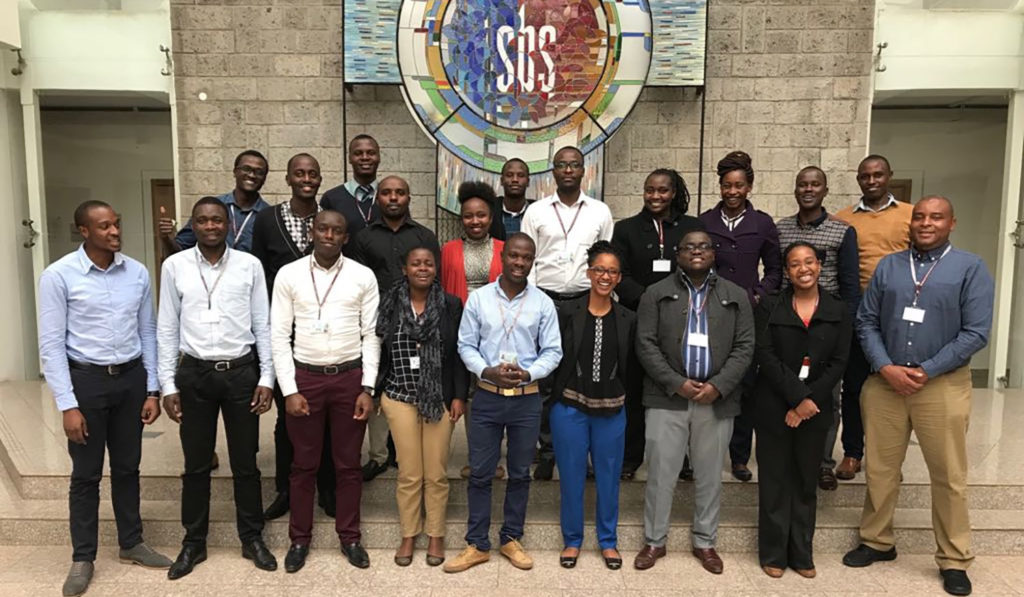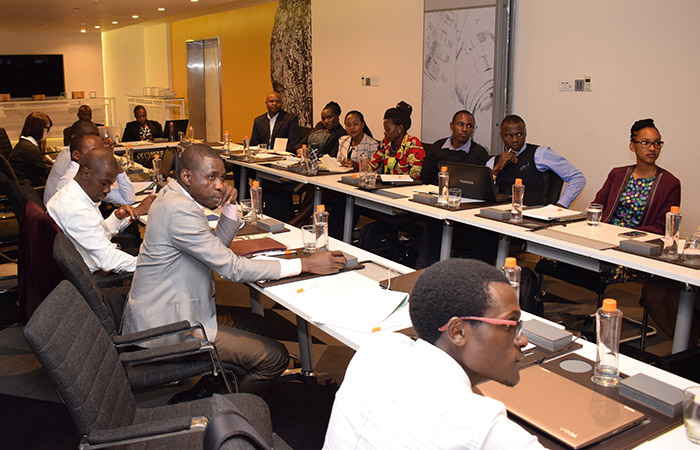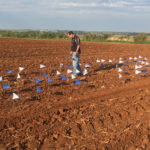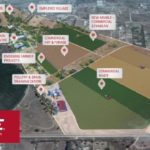Experiences From The AGCO Agribusiness Qualification Program
Victor Owuor, AGCO Agribusiness Qualification (AAQ) participant, narrates his experiences six months since the program was launched and unveils his newly coined perspective on agriculture.

Experiences From The AGCO Agribusiness Qualification Program
Victor Owuor, AGCO Agribusiness Qualification (AAQ) participant, narrates his experiences six months since the program was launched and unveils his newly coined perspective on agriculture.AGCO Africa and the AGCO Agribusiness Qualification Program
The AGCO AAQ program is a combined effort of organizations, institutions and individuals committed to the future of food security in Africa. AGCO, a global leader in the design, manufacture and distribution of agricultural equipment has invested in the program both as a lead partner and a friend of the continent. AGCO is keen on seeing its operations in Africa being managed mostly by Africans.

AAQ Program participants meet with AGCO and Strathmore Business School to discuss the program’s progress and future aspirations.
The program is intended to run for two years each, after which participants may have the opportunity to join AGCO Operations in Africa.With aid to the program, Strathmore Business School (SBS) and Harper Adams University develops and implements the academic curriculum while The Bridge Africa prepares participants for the junior management roles through bespoke work readiness and mentorship programs.
Changing the Perspective on African Agriculture
I was honored to be amongst twenty applicants selected to partake in the program and without doubt, the journey has been both transformative and eye-opening. It has indeed changed the way I view agriculture especially with regards to food production in Africa.
From my background, I grew to learn that food production (predominantly meant for subsistence) would be a manifestation of hard work by community members, who in their numbers completed the food security equation by offering labor in farms. This view would hold agriculture at a position where cultivation would be solely related to bringing food to the table and as such, land would be tilled seasonally without regards to other prevailing factors. The program has to greater extent wafted away this perspective and I have come to view agriculture from a different angle. It has introduced me to several mechanization solutions that would substitute reliance on human labor force and as a sure way to brighten the future of agriculture in Africa.
“Furthermore, my knowledge of agribusiness now not only encompasses primary production but also every aspect of the agricultural value chain.”
Eventually, I have come to learn that when it comes to agriculture, there are other bottom-lines to be pursued in addition to bringing food to the table; a farmer’s timely investment in soil health, his/her eyes on gross margins and a commitment to sustaining the quality and health of his/her farm environment through sustainable agricultural practices. Furthermore, my knowledge of agribusiness now not only encompasses primary production but also every aspect of the agricultural value chain. In fact, the modular experience has exposed me to the reality that a value chain approach to agribusiness is currently taking center stage, acting as a medium for investors to reduce production costs. The success of its implementation however, lies in the investor’s willingness to embrace agricultural companies with the mission to walk with them towards profitable growth.
Learning from Leaders in Agribusiness to Address Food Security
In addition, the school calendar has over time resulted in a concoction of coursework, a series of site visits and team building exercises, all of which have allowed us to develop bonds amongst ourselves and the staff. Over the course of the first six months of program, we visited the Corporation’s Acquisition under GSI – Cimbria in Nairobi, which works to provide turnkey solutions for its customers in grain handling and seed processing. Further visits were also made to commercial farms in Machakos and Rongai (in Kajiado), where we gained on-site valuable experiences on agricultural science in relation to what had been taught in class.
Upon interacting with the farmers, it was exciting to learn how their knowledge and investment in the soil seamlessly translated to gross margins. One farmer in particular (Stuart Barden) who grows rotational crops on black cotton soil in one of the semi-arid areas of Kenya advised that what differentiates successful farmers from the rest are the practices they adopt in soil management. Stuart’s farm relies on zero tillage and he foregoes the second rainy season to allow his farm to accumulate the much-needed moisture content. Indeed, a lesson to embrace as a continent.
My experience in the program thus far has therefore refined my definition of agriculture into a systemic operation involving producers-farmers, agronomists, equipment suppliers and the market players all working together towards a common goal of profitably and sustainably feeding the world.
Related reading:
Students begin studies in Africa’s first-ever junior management agribusiness training program – March 08, 2018
Written by: Victor Owuor, AGCO Agribusiness Qualification (AAQ) participant



